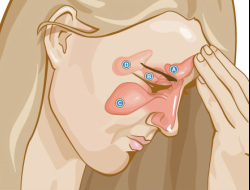|
I used to be able to sleep so well, but as I age I find it harder and harder to get a truly refreshing night’s sleep, even when I get seven, eight, or even nine hours.
As mentioned earlier, our bodies produce two important substances to help us achieve and maintain deep sleep: melatonin and GABA. As we age, we produce less and less of both even though we need restorative sleep as much or more in middle and older age than we did in young adulthood. The result is often a failure to spend enough time in the deeper levels of sleep, especially REM. Even if we don’t wake up in the night, we may be getting nudged out of the deeper levels of sleep, re-starting our 90 minute sleep cycles at phase one, then cycling down to level four or five before getting disrupted again by a partner moving in the bed, the sound of a motorcycle roaring past our house, or an ache in our hip or shoulder, starting the cycle over again at phase one. Instead of spending progressively more time in REM during each successive sleep cycle, we may be spending less time and getting less deep restorative sleep. Sensory deprivation (ear plugs and eye shades) are a good place to start. Marissa can show you the ones we like best, just ask her at the front desk. There are also medicines which work to induce sleep, such as Ambien (a benzodiazepine) and Lunesta (a non-benzodiazepine), both part of the class of drugs known as sedative/hypnotics. These drugs act to stimulate GABA receptors and have been shown to be clinically effective for insomnia. However, both drugs have been reported to have significant side effects and can become habit forming. Many patients who use these drugs regularly suffer fatigue and diminished mental concentration during the day. By contrast, we have had great success with a natural remedy: Best-Rest Formula, by Pure Encapsulations. Best-Rest includes melatonin and GABA in very low doses, along with valerian, chamomile, and other natural extracts. Best-Rest has not been shown to be habit forming or to cause rebound insomnia when coming off its use. The side effects have been minimal in comparison to sedative/hypnotic prescription medicines. I use Best-Rest and earplugs whenever I go through periods of difficulty falling asleep or staying asleep. Tip: The best way to eliminate sleep disturbance is to remove all obstacles to restorative sleep. If your mattress or pillow are not comfortable then it is time to consider changing them (remember that we spend one third of our lives pressed against our pillows and mattresses). If light or noise are a problem, consider sensory deprivation methods (ear plugs, eye shades). If you have post-nasal drip, consider drying agents or nasal lavage. As we age, natural sleep aids such as Best-Rest Formula by Pure Encapsulations can supplement us with the GABA and melatonin we lose as we age.
0 Comments
My spouse gets up before me and often wakes me up with noise or by turning on a light.
A spouse, family member, or roommate’s alarm clock, the sounds of dishes clanking, water running, mobile phones chiming, or music playing are common morning disturbances for a lot of people. Light which hits the face can stimulate a wake-up reflex. If these things are interfering with your ability to get that final dose of REM sleep needed to restore you, you may want to try earplugs and/or eye shades. There are new products on the market which are extremely comfortable, easy to use, and inexpensive. It may take a few nights to get used to, but sometimes simple sensory deprivation (dark and quiet) is all a person needs to maintain deep sleep. I keep waking up in the night to use the bathroom. What can I do about this?
Repeatedly waking to use the bathroom is one of the most common causes of sleep disruption. The chief reason for this problem is overhydration, the result of a baseless medical mantra which you may have heard: ‘You must drink at least eight glasses of water each day to be healthy.’ I do not know who began this medical meme, but there is absolutely no data to support the idea that 8 glasses of water per day is healthy. On the contrary, overhydration (too much water) can cause significant health problems, stemming primarily from sleep disruption and, over time, the washing out of important minerals, called electrolytes. I exercise nearly every day and lose a fair amount of water and electrolytes through perspiration. Over the course of a typical day, I will drink somewhere between 20 oz. and 40 oz. of fluids (3-5 glasses), either in the form of filtered water, mineral water or green tea. If I drank 64 oz. of water each day (8 glasses) I would suffer from overhydration and need to supplement my diet with magnesium, calcium, manganese, potassium, and sodium to avoid symptoms of fatigue, muscle cramping, and poor concentration. In addition, I would most likely need to use the bathroom between 2-3 times each night in order to empty my bladder as my body works overtime to rid my system of excess fluid. Less overall fluid intake and no fluids late at night are recommendations I make to my patients on a daily basis. Tip: A good routine to get into is to brush and floss your teeth immediately after dinner. The small bits of food which become trapped between the teeth and gums stimulate salivation which in turns fuels the desire to eat more. Follow brushing/flossing with a small glass of purified or mineral water and then have that be the last liquid of the day . Empty your bladder just before bedtime and you will notice that you are less likely to wake up in the middle of the night to use the bathroom. I Could Have A Sleep Disturbance Problem. What Should I Do About it?
Let’s look at some of the more common problems one at a time: I have a hard time staying in one position while I sleep. My shoulder bothers me if I sleep too long on my side, my neck can’t get comfortable when I’m on my back, and my lower back bothers me in the night. What can I do about this? First of all, let’s talk about the basic equipment we use for sleep: your mattress and pillow. How comfortable are they? How old are they? We spend about one third of our lives in our beds, yet many us pay little attention to whether we are comfortable and happy with our mattresses and pillows. As a chiropractor I am often asked, “Which mattress/pillow do you recommend?” My answer may surprise you, but the truth is that the best mattress for you is the mattress that you sleep best on. Everybody is different and no one mattress or pillow works for everyone. There is a widespread idea that firm mattresses are better for the back than soft ones. In fact, that is only true for about 25% of people. Approximately 25% of people do best on softer mattresses, and about 50% of people do best on mattresses with medium firmness. Generally, if you are a side sleeper you will do better on softer mattresses or (even better) a memory foam mattress which will cause less hip and shoulder compression while you sleep. If you are a back sleeper, you will likely prefer a firm mattress which gives better support to the lower back. But these are not hard and fast rules. The only way to know which mattress is best for you is to sleep on it for a few weeks. And the same is true of pillows. Some prefer high, some low, some softer, some firmer. Comfort is the key and each person must find his or her own particular fit. Sometimes a pillow or mattress feels wonderful for one night (or for half an hour while lying on it in a store) but over time becomes progressively uncomfortable. Other times, the love affair has a rocky start but gradually blossoms into something beautiful. I was sure right away about my current mattress but my wife took nearly three months of getting used to it before she declared that it was true love. This presents a bit of a problem. How do you know which is best for you before you go out and spend a lot of money on a new mattress? The answer, unfortunately, is that you don’t. This is the reason why I became a Tempur Pedic distributor. Tempur Pedic makes a great memory foam mattress. I like memory foam because it allows the body to sink into it without causing compression–great for side sleepers like me–and it comes in various degrees of firmness to suit any body. But what makes Tempur Pedic the best company in my mind is not that it is the ‘best’ mattress out there (there are a lot of great mattresses on the market today) but rather that they offer a 90 day free trial. As far as I know, they are the only company to give this kind of offer. We love our Tempur Pedic ‘weightless’ mattress. But if you don’t like yours after sleeping on it for a month, two months, even three months, you can call Tempur Pedic and have them come to your house and take it back for a full refund. Each year at least one of our patients returns a Tempur Pedic mattress he or she purchased through our office and we are so happy about it! Why? Because usually that person has learned what it is that he/she needs (something firmer, something softer, etc.) without having lost their money. Imagine how I would feel if I had recommended an expensive mattress which did not work out! Tip: As a medical distributor, we are able to prescribe Tempur Pedic products as medically necessary devices, enabling some degree of insurance coverage to defray the cost. Some of our patients with Flex Accounts have purchased Tempur Pedic mattresses and pillows with no out of pocket expense.  I have post nasal drip and when I lie down I have to keep swallowing or clearing my throat which keeps me from being able to fall asleep. What can I do about this? This is a common problem, especially for those who suffer from allergies. There are many good medicines on the market which can dry out your nasal passages and/or open your sinuses for better breathing. Sometimes teasing out the cause and selecting the right remedy can be tricky. I recommend speaking about this with your primary care doctor. Tip: If you do not want to use medicines of any kind (and many of my patients don’t), another way to go is nasal lavage. This involves the use of hypertonic saline (salt) wash to flush the nasal passages. Over the counter devices such as Neti Pot can be helpful. At our office we use ENT-Sol which is a more concentrated solution with an applicator that can apply more force to the flushing. These are inexpensive and natural methods for dealing with chronic sinus and nasal passage issues and can help with post nasal drip. The key is to perform lavage at least one hour before bedtime, as doing so can promote the drainage of congested passages increasing the likelihood of post-nasal drip for up to an hour. |
AuthorArchives
August 2021
Categories
All
|


 RSS Feed
RSS Feed